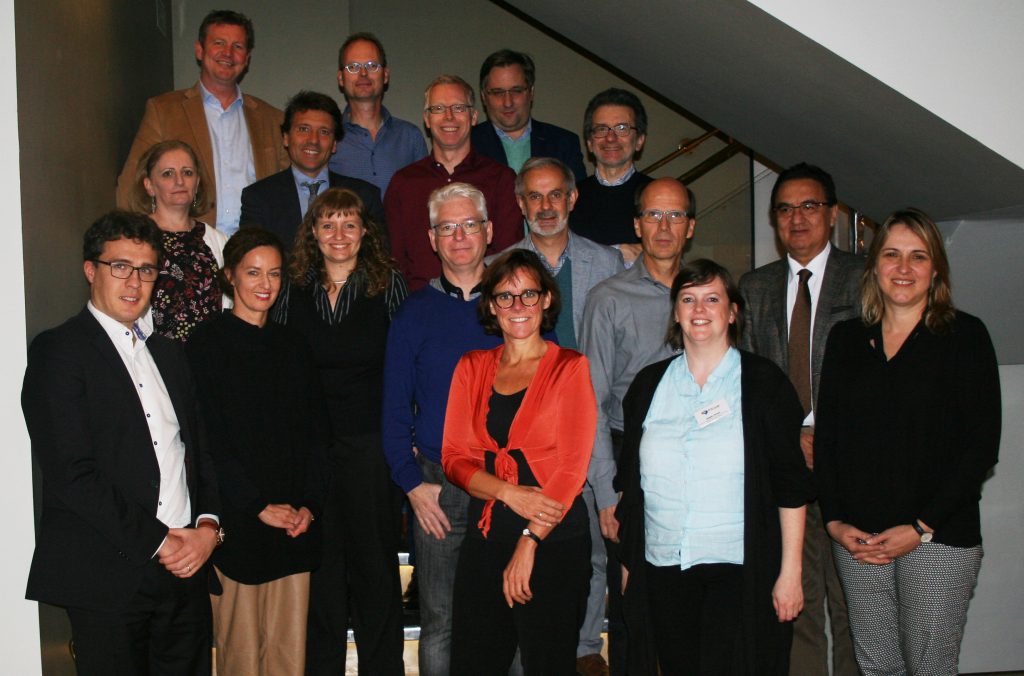Further reading:
Factsheet on Schizophrenia
Factsheet on Major Depression
For family members:
Rethink Mental Illness (England)
HAFAL – for Recovery from Serious Mental Illness (Wales)
MindWise (Northern Ireland)
Shine (Ireland)
Change Mental Health (Scotland)
For patients:
Depression UK: National Self-Help Organisation
Depression Alliance: UK charity for people affected by depression
Mind: UK charity for people with mental health problems
2nd Steering Committee meeting
Madrid, Spain
The second PRISM Steering Committee was held in Madrid, 17 – 19 October 2016. In addition to discussing the progress of all PRISM WPs, we thoroughly and successfully discussed the pre-clinical work and the implementation of the clinical study. As an outcome of these productive discussions and clear decisions the PRISM protocol can be finalised in the coming weeks.

WP8 Dissemination, training and communication
WP8 will increase the visibility of PRISM by reaching out to the scientific community, industry, patient organisations and other interested or potential stakeholders. A communication plan will be implemented. PRISM’s findings will be disseminated to the public through high-impact, international research publications, conferences and articles in the laymen press.
WP7 Engagement with regulatory groups, agencies and other stakeholders
WP7 takes care of three aspects of PRISM’s structure and outreach: (1) Ethical requirements for the work undertaken by PRISM; (2) the impact of PRISM outcomes from the patient`s perspective; and (3) initiate the regulatory path for clinical readouts identified by PRISM. Many clinical trials in brain disorders have focused on primary outcomes that are marginally relevant to the affected person´s quality of life (e.g. 20% reduction on a general psychopathology scale in SZ). The lack of ecological and pragmatic outcomes that translate to real-world advantages in many trials may be due to a lack of involvement of the individuals affected by the diseases, the patients themselves and their families. Involvement of such stakeholders is a key component of this WP. In addition, WP7 will liaise with regulatory agents to pave the regulatory path for clinical readouts relevant to acute social withdrawal as well as attention, working memory and sensory processing deficits across various disease conditions. Clinical trial use of primary outcomes based on biomarkers across different disorders is considered an innovative development methodology that will require scientific advice from EMA for future qualification of novel methodologies for medicine development.
WP6 Pre-clinical harmonization of experimental approaches
The overall aim of WP6 is to set up preclinical proxy indicators of social withdrawal in mice and determine which cognitive domains might be impacted by such impairments. The biological substrates of social withdrawal identified in the clinical work packages by correlating genetic and molecular findings to behaviour and function will then be interrogated with this preclinical test battery to determine the degree of translational validity of these findings.
WP5 Clinical harmonization of experimental approaches
WP5 will utilize already available patient cohort infrastructures within Europe to analyze or complement existing data on social withdrawal and cognitive deficits (sensory processing, attention, working memory) within samples of SZ, AD and MD. Using already available biological and genetic data, coupled with results from world-wide genetic consortia, we will explore the biological substrate of social withdrawal and cognitive deficits in the different disorders through cohort data mining and PheWAS.
WP4 Clinical study implementation and operations
WP4 will validate clinically relevant biological substrates for social withdrawal and cognitive function through the use of quantitative technologies including behavioural, functional MRI and electroencephalography (EEG) paradigms. This will be achieved by conducting a clinical investigation in a multi-center clinical study to evaluate the relationship between social withdrawal and cognitive performance in SZ and AD patients.
